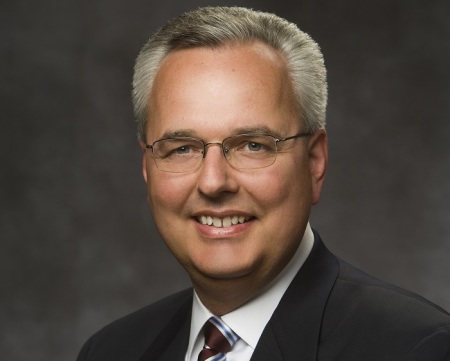Mormon Church Excommunicates Top Leader James J Hamula

In a rare disciplinary move, the Church of Jesus Christ of Latter-day Saints announced Tuesday that they have excommunicated James J. Hamula as a General Authority Seventy.
"This morning James J. Hamula was released as a General Authority Seventy of the Church of Jesus Christ of Latter-day Saints, following disciplinary action by the First Presidency and Quorum of the Twelve Apostles," the LDS Church said in a statement.
Excommunication is described by the LDS Church as the "most serious sanction the disciplinary council may prescribe."
"This is a course of last resort and is only taken when less serious disciplinary measures are insufficient. Those who have lost their LDS Church membership may continue to attend public Church meetings, though they are restricted in their participation in the same way as someone who has been disfellowshipped," the LDS Church explained. "Additionally, they would not be permitted to pay tithes to the Church. Though they are no longer a Church member, their local leader may offer continued counsel and guidance."
If excommunicated members of the LDS Church are deemed to have repented of their sin, they can return to the church but must be rebaptized.
Hamula became a member the General Authority Seventy in 2008. It is a group of nearly 90 leaders below the LDS Church's president, his two counselors and two other levels of leaders.
It is the first time in nearly 30 years that the LDS Church has had to discipline a top leader through excommunication and sources told both The Salt Lake Tribune and Deseret News that the 59-year-old married father of six was not dismissed for "apostasy or disillusionment." The LDS Church handbook cites other moral reasons for excommunication including: adultery, burglary, embezzlement, spousal abuse and "homosexual relations."
"The LDS Church has zero tolerance for abuse of any kind, including child abuse, spousal abuse, sexual abuse or child pornography, and anyone engaged in these practices would rightly face both criminal prosecution and Church discipline," the handbook explains.
"Criminal activities, including fraud, robbery, burglary, the sale of illegal drugs or the abandonment of family responsibilities, also warrant Church discipline. And serious personal sin, including abortion or sexual sin, may require disciplinary action as part of the repentance process," it added.
The last General Authority Seventy leader who was excommunicated was George P. Lee, 28 years ago, according to Deseret News.
"It's just so rare, especially in 20th- and 21st-century Mormonism, that it really is news," Patrick Mason, an expert in Mormon Studies at Claremont Graduate University, told the publication. "For me personally, on one level, it's news. General authorities are public figures. On the other hand, this is someone's private life. This might be a deeply intimate, private matter that should stay between him and his family and church leaders."
Hamula was a member of the Pacific Area Presidency, headquartered in Auckland, New Zealand, from 2009 to 2014, the LDS Church said. When he returned stateside he served as assistant executive director of the Church History Department from 2014 to 2016. Prior to his dismissal he was serving as executive director of the Correlation Department.
From 1985 until he was called to be a General Authority in 2008, Hamula, who was born in Long Beach, California, practiced law. He also previously served in a number of churches, including as a full-time missionary in the Germany Munich Mission. He was Young Men president, stake president, president of the Washington D.C. South Mission and Area Seventy.





















